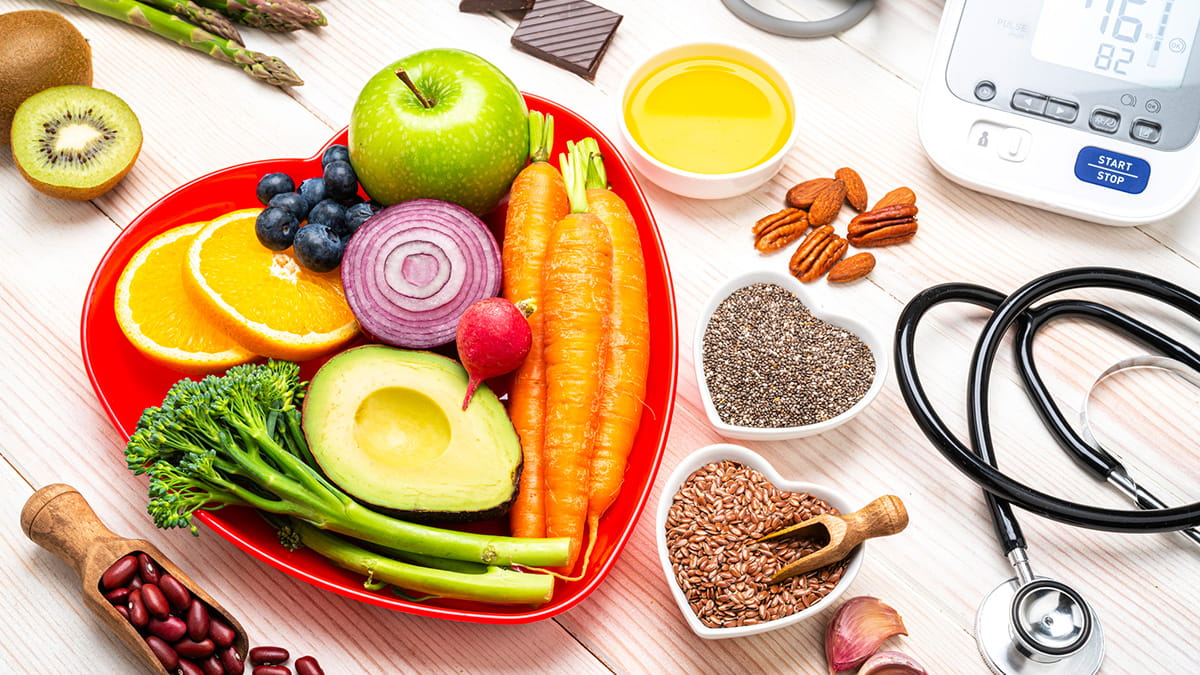Blog article
Elective surgery 101: What to eat for a faster recovery

The right nutrients can support wound healing, reduce inflammation, and boost your energy levels, while the wrong foods can slow recovery and lead to complications.
In this blog, we explore the best foods to include in your post-surgery diet, along with a few to avoid, to help you get back to feeling your best as quickly as possible.
Protein for healing
Protein is essential for repairing tissues and promoting wound healing. By incorporating protein-rich foods into your diet, you’ll help your body rebuild strength and recover faster. We recommend trying to include the following in your post-surgery diet:
Lean meats: Chicken, turkey, lean cuts of beef, and pork are excellent sources of protein that also provide important nutrients like iodine, iron, zinc and vitamin B12, which aid in healing.1
Fish: Fatty fish like salmon and tuna are packed with protein and omega-3 fatty acids, which have anti-inflammatory properties.2
Plant-based options: If you follow a vegetarian or vegan diet, include plenty of beans, lentils, tofu, and quinoa for a protein boost.3
Fruits and vegetables high in vitamins and antioxidants
Vitamins, particularly vitamin C and vitamin A, play a crucial role in collagen formation and immune support, which are vital for recovery.4 We recommend eating the following:
Vitamin C-rich foods: Citrus fruits (oranges, lemons, limes, grapefruits), strawberries, tomatoes, cabbage, broccoli, cauliflower and potatoes help with collagen production and wound healing.4
Vitamin A-rich foods: Carrots, sweet potatoes, red capsicum, mangoes, pumpkin, spinach, peas and broccoli support the immune system and help fight off infections during recovery.4
Antioxidant-rich fruits: Blueberries, raspberries, and blackberries provide antioxidants that protect your cells from damage and promote overall health.5
Whole grains for sustained energy
Post-surgery recovery can be draining, and you’ll need energy to get through the healing process. Whole grains provide complex carbohydrates that release energy slowly throughout the day. Great examples include:
Brown rice, whole wheat bread, oats, and quinoa - These grains are also high in fibre, which aids digestion and can help prevent constipation – a common side effect of certain medications and reduced activity.6,7
Healthy fats for inflammation reduction
Fats can have a pretty bad rep, but remember, not all fats are created equal! We recommend focusing on healthy fats that support healing and reduce inflammation, like:
Avocado: Rich in monounsaturated fats, avocado helps reduce inflammation and provides essential nutrients like potassium.8
Nuts and seeds: Almonds, walnuts, flaxseeds, and chia seeds are packed with omega-3 fatty acids and fibre.9
Olive oil: Use extra virgin olive oil as a dressing or cooking oil to incorporate heart-healthy fats into your meals.10
Stay hydrated for better recovery
Staying hydrated is essential for all body functions, including healing. Water helps transport nutrients, flush out toxins, and prevent dehydration.11
As a general guide (where one cup is 250ml):12
- Adults need about 8-10 cups of fluid a day
- Pregnant or breastfeeding women need about 9 cups of fluid a day
- Children need between 4-5 cups and teenagers need between 6-8 cups of fluid per day
Try to also limit your intake of caffeinated and alcoholic beverages which can lead to dehydration and may interfere with your body’s fluid balance.13
Foods to avoid during recovery
Certain foods can slow down your recovery, so we recommend limiting or avoiding the following:
Highly processed foods: Fast food, packaged snacks, and sugary treats are often low in nutrients and high in unhealthy fats, which can lead to inflammation.14
Excessive salt: Too much sodium can cause water retention, leading to bloating and high blood pressure, which can complicate recovery.15
Alcohol: Drinking alcohol can interfere with medications, delay healing, and weaken your immune system.16,17
By nourishing your body with the right foods, you’ll support faster healing and improve your overall well-being during recovery.
Looking for healthy eating advice?
- HBF diet and nutrition cover can pay benefits towards visits with a dietitian or nutritionist, who can give you expert advice on healthy food choices to optimise your health and wellbeing.
If you’re an HBF member, you can check what you're covered for by logging on to myHBF or calling us on 133 423.
1Better Health Channel - Meat and poultry
2Better Health Channel - Fish
3Better Health Channel - Vegetarian and vegan eating
4Better Health Channel - Vitamins and minerals
5Mayo Clinic - Add antioxidants to your diet
6Eat for Health - Grain (cereal) foods, mostly wholegrain and/or high cereal fibre varieties
7Healthline - Managing Constipation After Surgery
8Healthline - 7 Potential Health Benefits of Avocado
9Healthline - 12 Foods That Are Very High in Omega-3
10Heart Foundation - 10 ways to get the right balance of fats
11Better Health Channel - Water – a vital nutrient
12Healthdirect - Drinking water and your health
13Healthline - Do Some Drinks Cause Dehydration?
14National Geographic - How ultra-processed food harms the body and brain
15HeartWest - What Are Signs Of Too Much Salt - Avoid High Sodium Intake
16Healthdirect - How alcohol affects your health
17Alcohol Research & Health - Alcohol and Medication Interactions
This article contains general information only and does not take into account the health, personal situation or needs of any person. In conjunction with your GP or treating health care professional, please consider whether the information is suitable for you and your personal circumstances.



